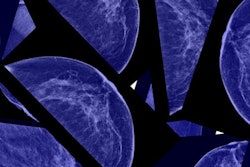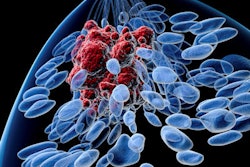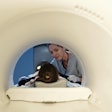
A diagnosis of breast cancer may not cause the physical ruin it once did, thanks to improvements in early detection and treatment. But it can cause financial devastation, which can be just as damaging, according to a study published online July 23 in Cancer.
Addressing women's concerns about the financial burden of breast cancer and its treatment is the next step toward the goal of developing a truly comprehensive care model, wrote a team led by Dr. Reshma Jagsi of the University of Michigan.
"Although progress in breast cancer treatment is laudable, the results of [our] study demonstrate that we have gone only part of the way to our goal," the group wrote. "Efforts must now turn to confront the financial devastation that many patients face, particularly as they progress into survivorship."
Financial strain
Even patients with health insurance can face financial hardship when dealing with cancer, from disruptions in employment due to treatment to out-of-pocket medical costs, Jagsi and colleagues wrote. But there has been little research about whether increased awareness of this financial burden has motivated physicians to address the concern.
For their study, the researchers asked surgeons, medical oncologists, and radiation oncologists how often someone in their practice discusses the financial burden of cancer treatment with patients. They also evaluated specialist awareness of out-of-pocket costs to patients and how important physicians believe it is to save their patients money.
Jagsi's group surveyed 3,672 women between the ages of 20 and 79 who were diagnosed with early-stage breast cancer between January 2013 and September 2015; patients were identified through two Surveillance, Epidemiology, and End Results (SEER) regions. Of the total patients surveyed, 2,502 responded, for a rate of 68%.
Patients were asked about lost income since their diagnosis, out-of-pocket medical expenses related to breast cancer (copays, medication costs), other out-of-pocket expenses such as wigs or bandages, and travel, child or elder care, and alternative medicine costs.
The researchers also asked patients if they currently had debt, whether they had to use savings to pay for care, and whether they had to cut spending on other categories such as food, utilities, or housing. Of the patient cohort, 1,227 women were white, 463 were black, 516 were Latina, and 240 were Asian (56 were other racial or ethnic groups); a quarter of patients had a high school education or less, and more than a third had a household income of less than $40,000 per year.
Jagsi and colleagues identified attending surgeons and oncologists through patient reports and the SEER data, obtaining responses from 370 surgeons, 306 medical oncologists, and 169 radiation oncologists. Physicians were asked how often someone in their practice discussed financial burden with patients, how aware they were of out-of-pocket costs to patients, and how important it was to them to save patients money over the course of breast cancer treatment.
The group found that medical oncologists and radiation oncologists in particular reported awareness of patients' out-of-pocket costs for tests and treatments, and they stated that it was important to them to save their patients money over the course of treatment.
| Physician awareness of breast cancer's financial burden to patients | |||
| Surgeons (n = 370) | Medical oncologists (n = 306) | Radiation oncologists (n = 169) | |
| Believes someone in practice discusses financial burden of cancer (often or always) | 15.6% | 50.9% | 43.2% |
| Is quite or very aware of out-of-pocket costs of tests and treatments | 27.3% | 40% | 34.3% |
| Believes it's quite or extremely important to save patients money | 35.3% | 57% | 55.8% |
But patient responses told a different story: Of the women who expressed at least some worry about the financial burden of breast cancer treatment, 72.8% said that cancer physicians and staff did not help them. In addition, of the women who indicated a desire to talk to a healthcare provider or social worker about the effect of breast cancer on their employment or finances, 55.4% said they had not had this kind of discussion.
"Although many physicians, particularly medical oncologists, have reported attempting within their practices to help manage financial issues with their patients, marked unmet need remains," Jagsi and colleagues noted.
Finally, the researchers found that patient-reported financial strain varied significantly by race, with almost 60% of black women reporting debt from treatment, for example.
| Financial burden of breast cancer treatment as reported by patient ethnic status | |||||
| White women (n = 1,227) | Black women (n = 463) | Latina women (n = 516) | Asian women (n = 240) | ||
| Debt from treatment | 27.1% | 58.9% | 33.5% | 28.8% | |
| At least somewhat worried about finances as the result of treatment | 31.9% | 48.9% | 49.7% | 35.2% | |
| Loss of home due to breast cancer treatment | 1.4% | 4.7% | 6% | 1% | |
| Utilities terminated due to lack of payment | 1.7% | 5.9% | 3.2% | 0.5% | |
| Cutting food spending to cope with financial burden of cancer treatment | 21.5% | 45.2% | 35.8% | 22.5% | |
Of the total patient cohort, 14% reported lost income that was more than 10% of their household income, and 17% reported spending more than 10% of their household income on out-of-pocket medical expenses.
No longer acceptable
Physicians must assess breast cancer patients for financial burden and learn how to communicate effectively about the issue, Jagsi and colleagues wrote. Interventions might include training for physicians and staff on how to have sensitive conversations with patients or the use of interactive technology to elicit patients' financial concerns and make their providers aware of their needs. But the bottom line is that ignoring the financial burden of breast cancer care and treatment is not an option.
"To cure a patient's disease at the cost of financial ruin falls short off the physician's duty to serve, and failure to recognize and mitigate a patient's financial distress is no longer acceptable," the group concluded.




















